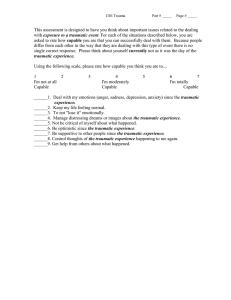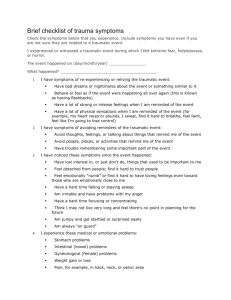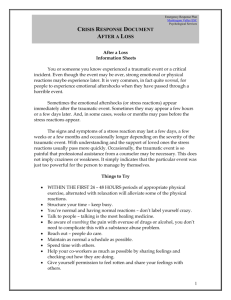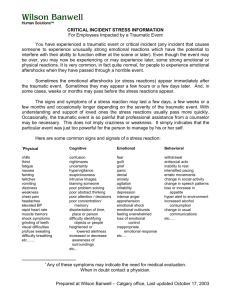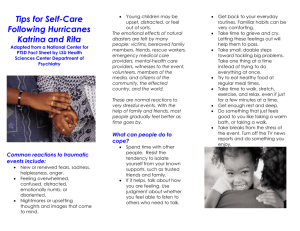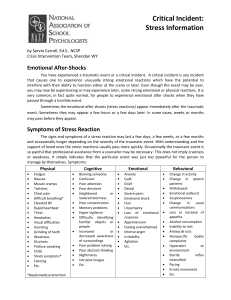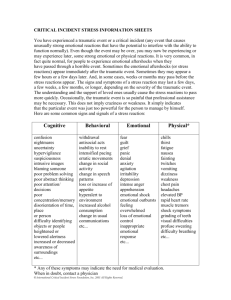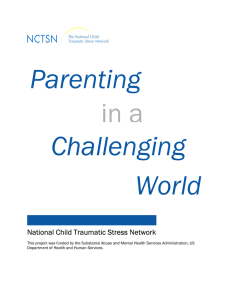Tips for Finding Help: Information
advertisement
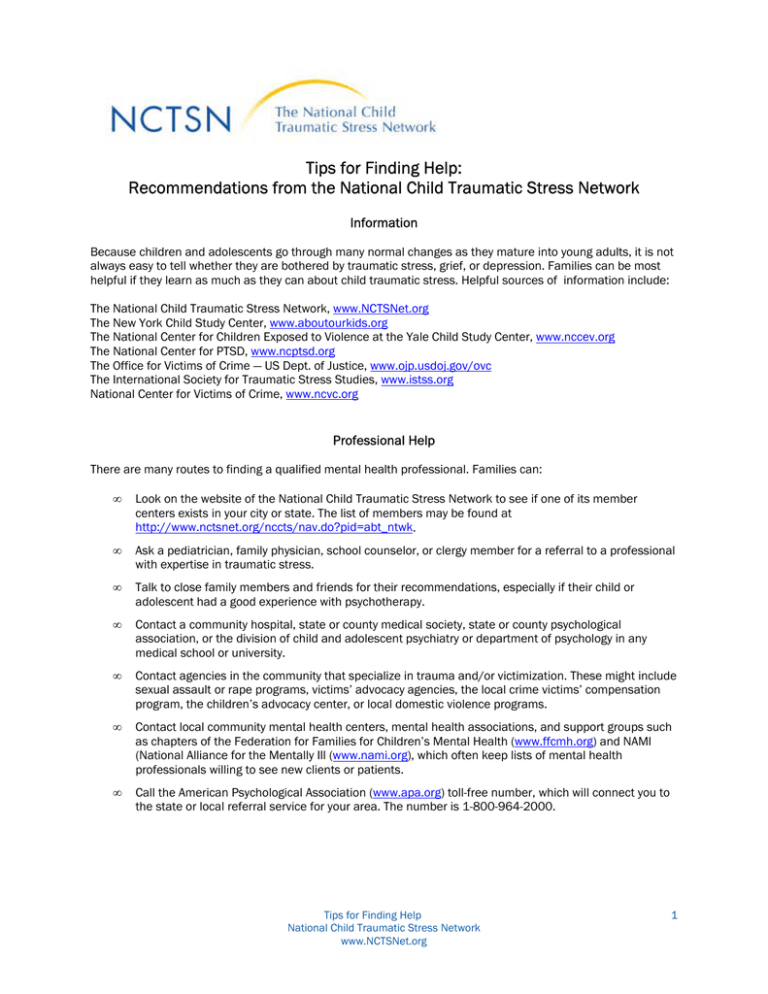
Tips for Finding Help: Recommendations from the National Child Traumatic Stress Network Information Because children and adolescents go through many normal changes as they mature into young adults, it is not always easy to tell whether they are bothered by traumatic stress, grief, or depression. Families can be most helpful if they learn as much as they can about child traumatic stress. Helpful sources of information include: The National Child Traumatic Stress Network, www.NCTSNet.org The New York Child Study Center, www.aboutourkids.org The National Center for Children Exposed to Violence at the Yale Child Study Center, www.nccev.org The National Center for PTSD, www.ncptsd.org The Office for Victims of Crime — US Dept. of Justice, www.ojp.usdoj.gov/ovc The International Society for Traumatic Stress Studies, www.istss.org National Center for Victims of Crime, www.ncvc.org Professional Help There are many routes to finding a qualified mental health professional. Families can: • Look on the website of the National Child Traumatic Stress Network to see if one of its member centers exists in your city or state. The list of members may be found at http://www.nctsnet.org/nccts/nav.do?pid=abt_ntwk. • Ask a pediatrician, family physician, school counselor, or clergy member for a referral to a professional with expertise in traumatic stress. • Talk to close family members and friends for their recommendations, especially if their child or adolescent had a good experience with psychotherapy. • Contact a community hospital, state or county medical society, state or county psychological association, or the division of child and adolescent psychiatry or department of psychology in any medical school or university. • Contact agencies in the community that specialize in trauma and/or victimization. These might include sexual assault or rape programs, victims’ advocacy agencies, the local crime victims’ compensation program, the children’s advocacy center, or local domestic violence programs. • Contact local community mental health centers, mental health associations, and support groups such as chapters of the Federation for Families for Children’s Mental Health (www.ffcmh.org) and NAMI (National Alliance for the Mentally Ill (www.nami.org), which often keep lists of mental health professionals willing to see new clients or patients. • Call the American Psychological Association (www.apa.org) toll-free number, which will connect you to the state or local referral service for your area. The number is 1-800-964-2000. Tips for Finding Help National Child Traumatic Stress Network www.NCTSNet.org 1
